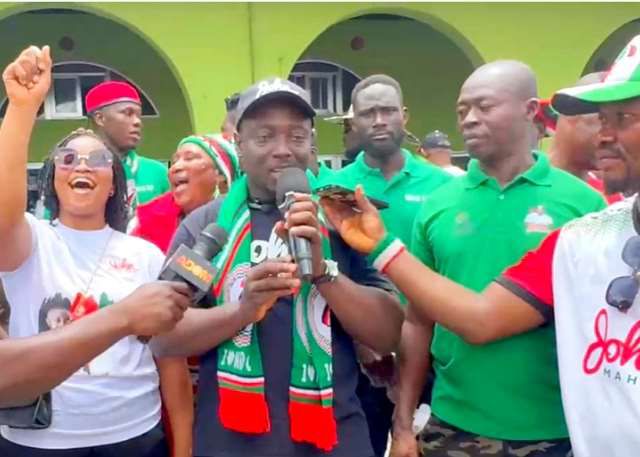The parliamentary elections in the Obuasi East constituency of Ghana, held on December 7, 2024, have become a focal point of controversy and legal dispute, centered around the contested victory of New Patriotic Party (NPP) candidate Patrick Boakye Yiadom. Samuel Aboagye, the National Democratic Congress (NDC) candidate, initially declared the winner, has vehemently challenged the outcome, claiming that the subsequent re-collation of results and the declaration of Yiadom as the victor were unlawful and a misrepresentation of the will of the Obuasi East constituents. Aboagye’s assertions hinge on the argument that the Electoral Commission (EC) acted outside its legal mandate by conducting a second collation and altering the initial results. This dispute underscores the fragility of electoral processes and the importance of adherence to established legal frameworks to maintain public trust and confidence in democratic institutions.
Aboagye’s dissatisfaction stems from the dramatic turn of events following the initial declaration of his victory. After the initial count, he was proclaimed the winner, a result he believes accurately reflected the votes cast by the constituents of Obuasi East. However, a subsequent re-collation, initiated by the EC, overturned this outcome, declaring Yiadom the winner by a slender margin of 19 votes. This reversal has fueled Aboagye’s conviction that the electoral process was compromised and that the true will of the people has been disregarded. He argues that the revised result represents not the choice of the electorate but rather an irregularity in the electoral process that unjustly denied him his rightful victory and the people of Obuasi East their chosen representative.
The crux of Aboagye’s legal challenge rests on his interpretation of the Public Elections Regulations, 2020 (C.I. 127). He contends that this legislation does not provide for a re-collation of results after the official announcement of a winner has been made. He argues that the initial declaration, documented on Form 1D, constitutes a legally binding declaration of the election results and cannot be altered without due process and justifiable cause. His argument hinges on the principle of finality in electoral declarations, emphasizing that allowing revisions without strict adherence to legal procedures opens the door to potential manipulation and undermines the integrity of the entire electoral process.
Aboagye’s pursuit of legal redress reflects his commitment to uphold the principles of democratic elections and to ensure that the voice of the Obuasi East electorate is respected. His public statements and actions signal his determination to pursue all available legal avenues to challenge what he perceives as an unjust outcome. He has expressed a deep sense of responsibility to the constituents who voted for him, asserting that he is fighting not just for his personal victory but for the right of the people of Obuasi East to have their chosen representative in Parliament. This commitment to legal recourse underscores the importance of established mechanisms for resolving electoral disputes and ensuring accountability within democratic systems.
The Obuasi East electoral dispute highlights the critical role of clear, unambiguous electoral laws and the importance of consistent and transparent implementation of these laws by electoral bodies. Ambiguities or perceived loopholes in electoral regulations can lead to disputes and challenges, eroding public trust in the electoral process. The case also underscores the necessity of robust mechanisms for dispute resolution, providing avenues for aggrieved parties to seek redress through legal channels. A fair and impartial judiciary plays a vital role in adjudicating such disputes, ensuring that electoral outcomes reflect the true will of the electorate and upholding the principles of democratic governance.
The outcome of Aboagye’s legal challenge will have significant implications, not only for the Obuasi East constituency but also for the broader electoral landscape in Ghana. A ruling in his favor could set a precedent for future electoral disputes, reinforcing the importance of strict adherence to electoral regulations and potentially leading to reforms in electoral procedures. Conversely, a ruling against him could raise concerns about the vulnerability of electoral processes to manipulation and the limitations of existing legal frameworks in safeguarding the integrity of elections. The case underscores the ongoing need for vigilance and continuous improvement in electoral systems to ensure free, fair, and credible elections that accurately reflect the will of the people.














